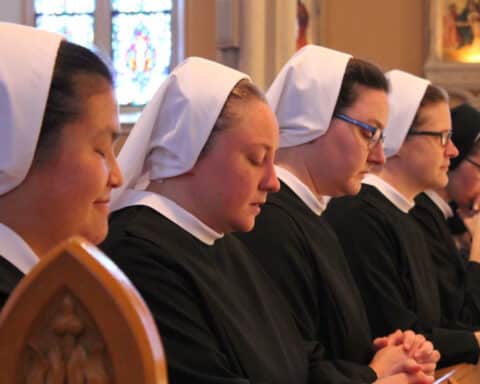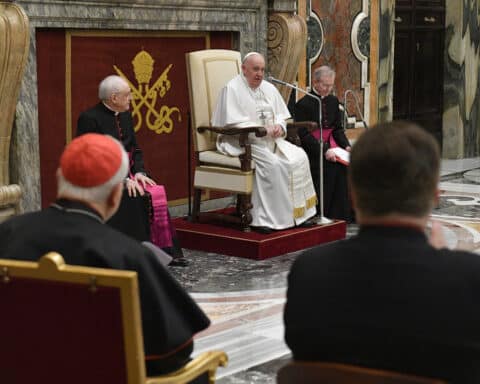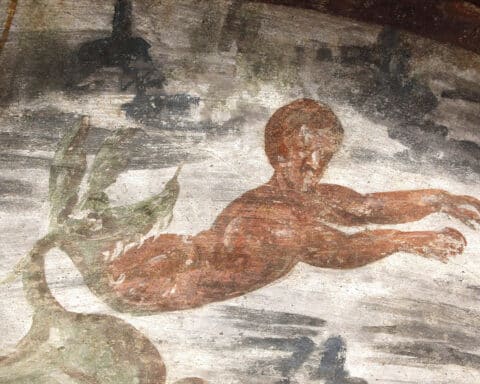
— Sue Korleski, Bayfield, Wisconsin
Answer: Yes. Repentance is the key that unlocks mercy. Without repentance, there cannot be mercy, since the sinner does not acknowledge or outright rejects their need for mercy. Repentance involves the acknowledgment that I have done something wrong, will strive to end such behavior and now seek mercy. The unrepentant do not think they need mercy since, to some degree, they do not accept that they are doing anything wrong. The very offering of mercy to them would be considered offensive or scoffed at. One of the chief errors of our day is the proclamation of mercy without reference to repentance.
Jesus warns, over and over again, of the need to repent and be ready for the day of judgment. Arguably 21 of the 38 parables are about this theme. There are the sheep and goats, those on the right and those on the left, the wheat and the weeds, the wise and foolish virgins, the stewards who are ready on the master’s return and those who are not, those who accept the invitation to the wedding of the king’s son and those who do not. The list could go on.
In all these parables, there are some who are saved and some who are lost, and the key matter is their behavior and their readiness for judgment. The opening words of Jesus’ ministry are, “Repent, and believe the gospel” (Mk 1:15). Jesus warns the unbelievers of his day: “if you do not believe that I AM, you will die in your sins” (Jn 8:24). He says elsewhere, “Whoever believes in him will not be condemned, but whoever does not believe has already been condemned, because he has not believed in the name of the only Son of God” (Jn 3:18). Throughout the Gospels, Jesus warns that certain behaviors and attitudes put one at risk of the fires of hell (cf. Lk 12:5; Mt 5:22, 29, 23:33; Mk 9:45, 47). He also warns that discipleship is not easy and that we must be willing to take up our cross and renounce many things or we cannot be his disciple.
Hence there are many sins and attitudes to repent of. To the repentant, Jesus was very merciful, but to the unrepentant and self-righteous, he was very stern.
As for Jesus forgiving the crowd from the cross, he bases that on one very specific norm: “They know not what they do.” Surely the leaders were very guilty of condemning a man they barely knew, of ignoring his true teachings and miracles, and of bringing in false witnesses in his mock trial. Even Pilate saw through their pretense. But Pilate, too, feared man and did not follow his own conscience. What those most guilty did not likely know is that they were killing their very God, Lord and Messiah.
St. Paul says as much: “We speak God’s wisdom, mysterious, hidden, which God predetermined before the ages for our glory, and which none of the rulers of this age knew; for if they had known it, they would not have crucified the Lord of glory” (1 Cor 2:7-8). Hence the Lord beseeches mercy for them regarding their “deicide” (killing of a god) due to their ignorance. But it does not follow that they are offered mercy without repentance regarding their many other sins. In those cases, they knew what they were doing and must repent to find mercy. Scripture speaks clearly to the connection of repentance and mercy: “If we say, ‘We are without sin,’ we deceive ourselves, and the truth is not in us. If we acknowledge our sins, he is faithful and just and will forgive our sins and cleanse us from every wrongdoing” (1 Jn 1:8-9).
Msgr. Charles Pope is the pastor of Holy Comforter-St. Cyprian in Washington, D.C., and writes for the Archdiocese of Washington, D.C. at blog.adw.org. Send questions to msgrpope@osv.com.





